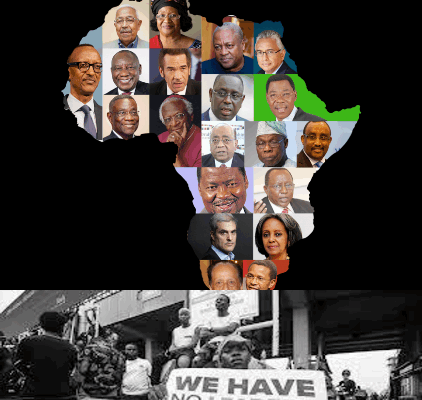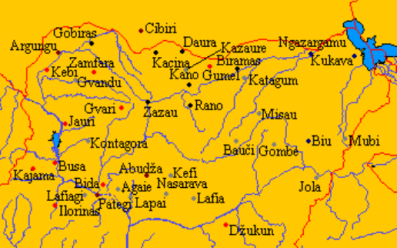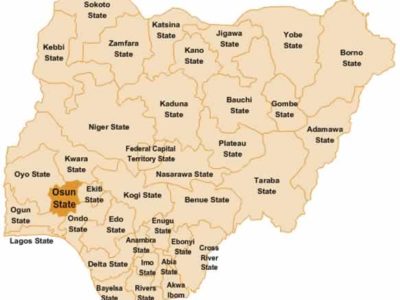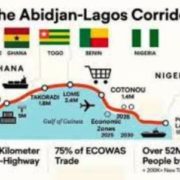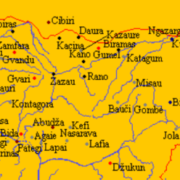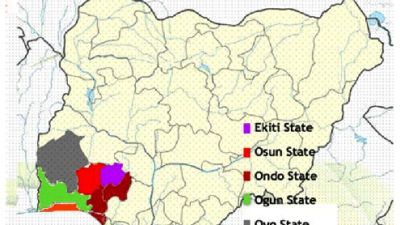By Samuel Zalanga , Professor of Sociology Emeritus
Recently, I have had the time to reflect a lot on the challenges of economic development and cultural change in postcolonial societies, which is one issue that I have been deeply interested in. While I am concerned about the situation in all developing countries, I was born in Africa.
For numerous reasons, I currently feel terribly disappointed with regards to where things are in terms of economic development and cultural change in the continent, especially the issue of human development and welfare of all people, but especially those that are in the least advantaged group and on the other side of history. I always feel this way particularly when I compare current development realities in many African countries, especially, Nigeria, my country of birth, with the expectations and hope that I had when I was an undergraduate student in the 1980s as a rural “campesino boy.”
It is not that all African countries are at the same level of development, but I still feel given my youthful idealism and expectations in the 1980s, the pace of desirable change aimed at uplifting the level of human development and welfare of the population has been too slow and low for me. So recently, I started reflecting on the idea of “Developmental State Ruling Elites and Bureaucracies” and “Predatory State Ruling Elites and Bureaucracies.”
After some reading and reflection, I try to come up with some “ideal type” of the two types of ruling elites and bureaucracies in postcolonial countries. This is the first part. It is my hope and prayer that the situation in Africa will decisively change for the better during my lifetime.
Based on historical and empirical evidence, no nation or continent can accidentally develop in the modern world; neither can postcolonial nations make progress by just relying on prayer and fasting or reiterating the trauma of colonial rule. Creating effective public institutions and cultivating appropriate moral and ethical commitment grounded in courage and sacrifice are necessary prerequisites (among others), for the kind of governance committed to “civil repair” and uplifting the human dignity and welfare of everyone. Yes, postcolonial countries can’t ignore the legacy of colonialism, but they cannot forever just be reiterating the dehumanizing aspects of colonialism without working assiduously to transcend it.
I remember reading Frantz Fanon’s book “The Wrteched of the Earth” as an undergraduate student and I will never forget this quote from the book that has continued to remain in my mind to this day: “Each generation must, out of relative obscurity, discover its mission, fulfill it, or betray it.”
Personally, I feel the older generation in many African countries have not accurately discovered their appropriate mission, and where they have done that, they have betrayed it. But a big question as a president of the United States once said, regarding public and social policy issues in the country, “If Not Us, Who, If Not Now, When?”
*************************************************************************
Developmental State Ruling Elites Focus on Productive Capacity of Societies
The most distinctive feature of the developmental state ruling elite is that they have deeply internalized the values of modern capitalist rationality. It may, on the surface, appear that all ruling elites in postcolonial societies that are capitalist have internalized this rationality. However, because there are many types of capitalism, modern capitalist rationality is just one out of several possible rationalities.[1] Interestingly, postcolonial ruling elites may maintain the form and semblance of modernity, but in essence still operate a socioeconomic system that is not really rooted in modern capitalist values and rationality.
Developmental state ruling elites in this respect focus on transforming the productive capacity of their societies and social relations.
The first element of capitalist rationality is the desire to continuously transform production to be more efficient. Developmental state ruling elites in this respect focus on transforming the productive capacity of their societies and social relations. Although commercial transaction is an integral part of the development of modern capitalism, developmental state ruling elites understand that developing commercial transactions without transforming the productive capacity of society and relations is not enough. That alone falls short of institutionalizing modern capitalist rationality and is therefore a superficial understanding of the logic of modern capitalism.
Profit-Making Facilitates Desire to Transform Production
Another critical element of modern capitalist rationality — profit-making — facilitates the desire to transform production. For the ruling elites of developmental states, however, profit-making encompasses much more than the narrow economic conceptualization of the term. It involves using modern capitalist production to increase the prestige of the nation through rapidly improving the standard of living of the citizens and the ranking of the nation in the world system. Whether it is through state corporations or private corporations, the standard of living of the nation’s population can only improve if there is some profit being made and shared fairly or equitably.
State or private corporations can tolerate losses for a while, but as a long-term strategy for national development, states and corporations must be able to produce in an efficient way, especially because they operate in a world system that is capitalist and competitive. Inefficient production leads to economic loses and institutional decline or decay. Continuous loses mean fewer surpluses for financing development programs and redistribution among social groups.
Ultimately, by creating the collapse of the state and private corporations, the accumulation of such losses affects the standard of living and prestige of the nation. Indeed, it may even bring the nation to its knees before foreign multilateral financial agencies such as the World Bank and the International Monetary Fund. In some cases, it may lead to the beginning of irredentist social movements.
Institutionalization of Capitalist Development in the Society
The strength of capitalist rationality among developmental states’ ruling elites, which is a value orientation, produces a set of attitudes that is appropriate to or congruent with the institutionalization of capitalist development in the society, which is a long-term goal. These attitudes guide the daily activities and decisions of the ruling elites towards institutionalizing the long-term goal of capitalist development.
If institutionalizing capitalist rationality is declared as a long-term goal of national development, but the elites lack the appropriate attitudes, there will be a disjuncture between the day-to-day activities, actions, and decisions of the ruling elites and their declared official commitment to institutionalizing capitalist development or promoting national development.
Focusing on attitudes and values is important because attitudes and values mediate the process of decision-making and actions of ruling elites. Knowledge of their attitudes, therefore, helps the researcher to measure the degree of political will and steadfastness of ruling elites in achieving the national development goals they have set for the nation.
Failure is Inevitable with Predatory State Ruling Elites
No matter what laudable ideas for national development may be mentioned in national development plans and official speeches, unless the day-to-day actions and decisions of the ruling elites consistently constitute a realistic process that will cumulatively culminate in achieving their declared goals, stagnation or failure is inevitable — such is the case with predatory state ruling elites.
But developmental states’ ruling elites are distinguished by their commitment to ensuring that day-to-day government decisions and actions cumulatively add up to a process of achieving the long-term national development goals set for the nation, which require the institutionalization of capitalist rationality.
However, for the national development goals set out and embedded in modern capitalist rationality to be realized, modern capitalist rationality has to be transformed from its abstract, Western-oriented and universal character to fit in with the concrete realities of a nation, i.e., local conditions, location in the world system, colonial legacy, ethnic or religious divisions and national economic, political and social constraints in the nation.
Navigating the Tension Between Global Markets and National Constraints
This process of transformation can be termed one of national domestication. Once nationally domesticated, modern capitalist rationality changes into a strong nationalist concern and agenda. The critical role that the developmental state ruling elites play here is to strike a balance between commitment to modern capitalist rationality in its abstract-universal form and the structural imperative of local and national constraints. Developmental state ruling elites do not allow themselves to be totally immersed in one area while totally ignoring the other.
Furthermore, the ruling elites neither ignore local/national/international constraints nor the realities of modern capitalist rationality in its abstract-universal form. Doing so enables the elites to have a steady progress towards achieving the goals of national development within a world system where capitalism is hegemonic and callously punishes the inefficient and losers in the long run.
The important issue about strong nationalist ideology is that it creates a national concern among developmental state ruling elites that leads to a subjective interpretation of the problem of underdevelopment or backwardness as an embarrassing situation to the national prestige and image of the nation among the comity of nations in the world capitalist system. The ruling elites of developmental states are realistic and accept the general criteria of ranking in the world system.
Even though they do occasionally query its injustice and unfairness, they are realistic enough to vigorously assert that the only way to earn national respect in the contemporary world community is through profitable, productive, and efficient economic transformation of their nation and the living standard of their people. For this reason, the ruling elites in developmental states, as government officials, tend to act hastily. They are ready to maximize and capitalize on any window of opportunity that opens in the international arena and are ready to confront hard facts about their inadequacies and make hard decisions as steps towards improving their ranking in the pecking order of the world capitalist system.
In a postcolonial country, mere existence of national backwardness not enough reason to spur ruling elites to action
In a postcolonial country or developing nation, the mere existence of national backwardness and underdevelopment is not in and of itself enough reason to spur ruling elites to action. It is the subjective nationalist and humanistic interpretation of the situation that makes the difference in terms of the necessary consciousness, courage and will to act appropriate.
The degree of intensity of subjective interpretation of the situation of underdevelopment by developmental states’ ruling elites is a critical turning point in the developmental process of a nation, because it creates a serious tension in the minds and careers of these ruling elites who occupy positions of institutional power in the nation. The intensity of subjective interpretation provides them a challenge in life– how to remove the stigma of underdevelopment and backwardness from their country and the lives of their citizens. The strength of this subjective interpretation of national development in reality compels them to develop a relatively simple but powerful vision for national economic transformation.
Although the vision may contain some internal contradictions and inconsistencies initially, it provides a focus for the nation and an appropriate rallying point for the general population. It becomes the nation’szeitgeist. Moreover, solving the contradictions in the vision leads gradually to the fine-tuning of the vision and the discovery of better strategies to realize it, which are later institutionalized.
Even though the general population may have internal differences in many respects, the broad nature of the vision creates a feeling of belonging and inclusion among the majority of the people, and they become ready to give their support to the developmental ruling elites’ coalition. The support is especially enhanced when the great majority of the population believe that they are truly sharing in some substantive way the increasing prosperity of the society. The vision, apart from providing a blueprint for the future, also critically and realistically specifies the changes and sacrifices that everyone and every social group needs to make in the nation in order for the vision to be realized.
Vision without power is a mere daydream
Vision without power to bring it about is as good as a mere daydream. Many people and social groups perhaps have excellent visions for the nation, but the difference is whether they have the power, political will, courage and determination to sacrifice in order to bring it about. The power here involves institutionalized political power to shape opinion, persuade others, or even coerce dissenters and losers by increasing the social cost of rebellion.
Power also involves having the means to generate and manage economic resources that will be used to bring about the development transformation of the nation and the quality of lives of the people. At this juncture, developmental state ruling elites embark on a structural overhaul of the political and economic system in order to facilitate the realization of the vision. In effect, they invest in institutional capacity building and making institutions work very well so that the transaction cost of doing business becomes very low.
This results in the institutionalization and legitimization of the vision. Development of productive forces (human and natural resources, capital, technology, land, etc.) and redistribution of economic growth across all segments of the population are used as the main criteria in the legitimization process. Performance is institutionalized as the main criterion for evaluating the political legitimacy of the developmental state’s ruling elites.
Process of capitalist transformation leads inevitably to creation of new elites
In streamlining political and economic institutions, which may involve some degree of centralization around the executive arm of government and the undermining of other independent bases of institutionalized power outside the modern state and civil society (e.g., traditional authority), opposition groups spring up resisting the agenda of developmental states’ ruling elites. This is natural because the process of capitalist transformation leads inevitably to the creation of new elites, the transformation of old ones, or even the destruction of old ones.
Losers or those who fall out in the process of modern capitalist transformation will generally form an opposition coalition or support a coalition that puts forward stiff resistance. Assuming the developmental states’ ruling elite coalition is able to establish its hegemony over other factions of the ruling elites’ coalition or opposing coalitions.
In that case, the transformative agenda moves forward to a deeper level. Often, the elites are able to co-opt the opposition coalition by casting a broad-based vision that will not humiliate the opposition but give them a viable vested stake and interest in the system.
The situation is further complicated by the fact that each faction of the coalition goes down to the general population and presents its case, soliciting support from different social groups. In a free and fair electoral situation, election results supporting the developmental states’ ruling elites are tantamount to being given a mandate by the public to implement their transformative agenda.
Military regimes might have some leeway in making and implementing decisions but they, too, are internally divided
However, even where the mandate is not very clear, the developmental state’s elite is able to use its open knowledge of the problems of the opposition ruling elite coalition to placate them and their supporters so that the nation can be united behind one goal, i.e., national development. Military regimes might theoretically have some leeway in making decisions and implementing them compared to civilian regimes, but they, too, are internally divided.
The danger, however, is that since the opposition under a military regime cannot fully express its resistance, this creates great danger, because the opposition could work underground to subvert the government’s development agenda, especially since they do not believe in it and therefore do not feel obliged to support it.
To fully realize the transformative national development vision, the developmental state’s ruling elites’ coalition pushes for the creation of a developmental bureaucracy that can effectively execute the transformative agenda. This entails creating new bureaucratic institutions with superior technocratic skills and reforming and reorganizing the whole government bureaucracy. This results in a more disciplined and efficient labor force in the civil service and other state agencies.
Disciplined and efficient labor force is a precondition for a productive and competitive world capitalist system
A disciplined and efficient labor force is a precondition for operating productively and competitively in the world capitalist system. It also helps in the transformation of productive resources and produces gains for the nation. The new bureaucracy or developmental bureaucracy is gradually infused with capitalist rationality and the national vision instituted by the developmental ruling elites’ coalition.
With time, the bureaucracy recognizes that it has a historic mission to play in the realization of the national development agenda. As they begin to produce results that are commended by groups in civil society and by international business interests and experts, their prestige increases compared to people in civil society. They also develop a high level of job satisfaction and professional commitment.
Once the capitalist rationality and the nationalist vision have been internalized by the bureaucracy, or domesticated, they become self-sustaining, and with little push from the developmental ruling elites’ coalition, the national development agenda is pursued vigorously within the world system.
Bureaucracy Reform Faces Fierce Internal and External Resistance
Indeed, because of the resources at the disposal of the bureaucracy (expertise, data, information, etc.), it in turn begins to exert pressure on the developmental state ruling elites’ coalition on how to better pursue and realize the national development agenda.
It must be asserted that creating a new technocratic bureaucracy or transforming an old bureaucracy is characterized by opposition among some factions within and outside the bureaucracy who do not want to modernize or who have benefited very much from the old, inefficient ways of doing things.
A conflict is therefore set in motion as the developmental state ruling elites begin the reform exercise. The national capitalist development agenda will be sustained only if the social groups resisting reform are taken care of, which could be repressive. On a critical note, one would argue that in the long run, repression is not the most effective strategy to accomplish the national capitalist development agenda on both moral and strategic grounds.
Development Happens Through Inclusion, Not Repression
National development requires the mobilization and commitment of the great majority of any nation’s population, and that can only be achieved on a sustainable basis through persuasion and co-optation rather than repression. Often, the best strategy is to ensure that the citizens receive economic and social dividends from the national development project. This is the most persuasive way to convince the national population to support the development agenda.
When the upper echelons of the developmental state bureaucracy become genuinely committed to the development agenda, they live to set an example, and they exert disciplinary control over the behavior of their subordinates. They themselves fear that poor performance of departments under their jurisdiction will result in them being fired by the developmental state ruling elites, and consequently, they will lose respect and honor among their colleagues and the national population at large.
Consequently, the rank and file of the bureaucracy who interact with the general public on a day-to-day basis cannot conduct themselves in a careless manner on their jobs. If they do so, the affected public reports back to the higher officials of the bureaucracy [via public medium of communication] and disciplinary action is immediately taken, while order, predictability, efficiency, and public trust are restored. Often, such a situation might result in administrative innovation in order to change the conditions and situations that breed inefficiency and predatory behavior in the first place.
As a result of the initial internalization and domestication of capitalist rationality (i.e., Weber’s spirit of capitalism) by the developmental state ruling elites at the apex of the political system, a series of chain reactions percolates through the hierarchy, resulting in the creation of a development-oriented and transformative bureaucracy.
Why Development Fails: The Critical Role of National Elites
With such a bureaucracy in place, development policy formulation and implementation become very effective. The effective formulation and implementation of development policies that lead to the transformation of developing countries is therefore significantly a product of the nature of the ruling elites with hegemonic control, in this case developmental ruling elites.
The focus here has been on the ruling elites because making public policies and implementing them requires institutional power and capacity. The ruling elites are important in explaining the question this book seeks to answer essentially because of the institutional and organizational power and resources they control and command.
Other social groups in society might have good ideas, but this cannot make so much difference in national development, unless they are presented to the ruling elites, and the elites accept them and make a commitment to seeing the ideas implemented through the institutions they control or lead. The middle class or other social classes in civil society might have great contributions to make in the area of development policy formulation and implementation, but for the ideas to be implemented, the groups will have to persuade the ruling elites with institutional power to accept the ideas and implement them.
The other alternative, of course, is for the non-ruling elites’ social groups to usurp institutional power in order to implement their ideas, but such an option is not considered realistic in contemporary times because of two reasons.
The Global Legacy of Communism: A Deep Distrust of Revolutionary Regimes
First, since the emergence and collapse of communism, many people in the world have become suspicious of revolutionary governments that promise virtually everything. Second, such a revolutionary takeover will face a lack of cooperation from ruling elites in other countries of the world that might feel threatened by such a precedent. In any case, even if it happens, it cannot escape the question of institutional effectiveness vis-à-vis the formulation and implementation of development policies.
The emergence of a developmental state, ruling elites’ coalition and bureaucracy is critically important for the realization of a national development agenda. That notwithstanding, it does not mean that countries with such institutional structures and organizational arrangements do not face any other problems in formulating and implementing development policies.
The Ferocity of Global Capitalism Makes the Future Unpredictable
Indeed, many other problems will be confronted, and often it will be difficult to predict the future accurately in a ferociously capitalist world system. It is common knowledge that the international capitalist system has been institutionally structured in such a way as to be biased against the economic interests and emergence of newly industrializing nations.
But it is important to assert that with a developmental ruling elites’ coalition in power and a developmental bureaucracy, the state is in a very good position to manage problems that emerge nationally or internationally to constrain national development policy formulation and implementation. Indeed, with such a ruling elite coalition, no development problem becomes insurmountable in the long run, and international development obstacles are subjectively interpreted as challenges rather than inflated to a level that they become excuses for organizational ineptitude and inertia. Such institutional and organizational arrangements create stability, cohesion, predictability, and continuity of development policies and their implementation.
While postcolonial nations that have developmental ruling elites’ coalitions and bureaucracies are comparatively on the fast lane of economic development, postcolonial nations that have predatory ruling elites and bureaucracies are, from the point of view of development policy formulation and implementation, stagnating, declining, and even regressing.

